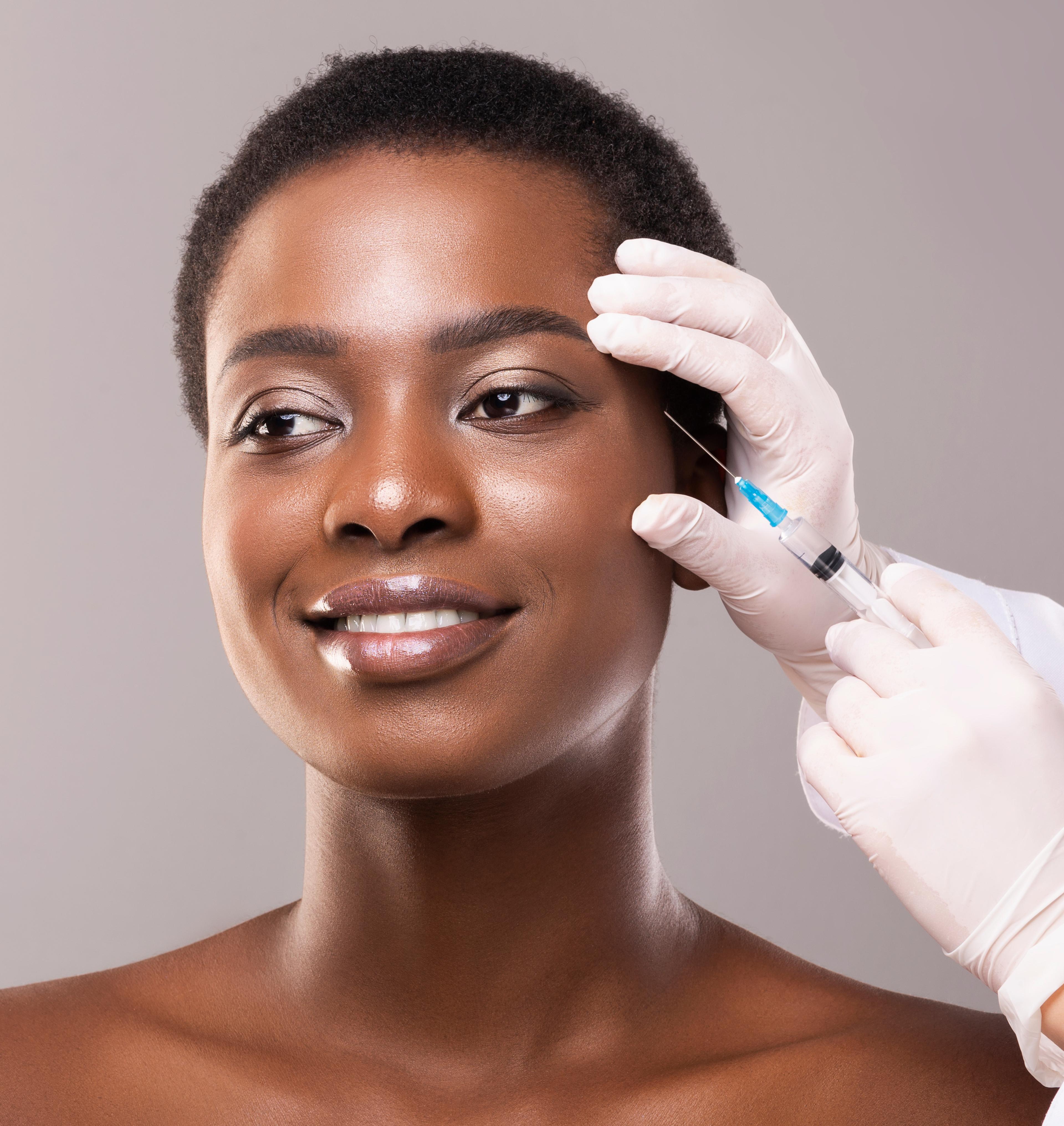Glowday's professionals are experienced with all skin types, book your consultation today right here
Black Don't Crack? Aesthetics & Black Skin
As a black woman I’ve often recited the ‘black don’t crack’ adage with gloating pride. And why not? The benefits are bountiful. From the anti-ageing properties it offers, to forming a shield against environmental stressors like UVA and UVB, not to mention higher protection from skin cancer – melanin is indeed magic! Like many of my black female peers, I’ve often been curious about aesthetic treatments, but I’ve also been quite concerned about the potential adverse effects it may have on my skin. For instance, in the past it was a commonly held belief that laser treatment was a big no no for melanin-rich individuals. But what’s not so well known is that in recent years technological advancements have made it possible for those with dark skin tones to enjoy the benefits of such treatments safely and effectively. With this in mind, I set out to explore other myths in the industry and spoke to industry professionals to set the record straight.
MYTH 1: Laser treatments are dangerous for black skin
Laser treatments for hair removal have been around for many years, but there was a definitely a boom during the ‘90s. During that era the technology was quite limiting, treatments were deemed as painful, and machinery was sluggish so procedures were tedious and laborious. Furthermore, laser treatment was mainly suited to paler skin tones due to the fact that lasers worked best when the skin underneath and around the hair were of a lighter hue than the hair itself. On the contrary, if the skin and hair were darker and similar in shade, the laser could’ve potentially misfired and the risk of superficial burns was high. Things have thankfully changed since then, and there are now specific lasers that are adept at treating black skin. That said, it’s crucial for those seeking laser treatment to do their research and ensure that their chosen practitioner has the relevant equipment as well as experience in treating dark skin.
MYTH 2: Skin brighteners are similar to skin lightening creams
Eek! I have to hesitantly raise my hand at this one and admit that I am definitely a woman of colour who still can’t help but recoil at the mention of skin brighteners, instantly correlating it with skin bleaching creams, which, as we know, can be very damaging to the skin if abused. Despite the countless hours I’ve spent talking to dermatologists, and other skin doctors who have told me on the contrary, I’ll admit - it’s a hard habit to break. So, for the record, skin lightening creams utilise hydroquinone as an active ingredient, used to treat things like acne scars and discoloration, and limit the production of melanin. Conversely, skin brighteners are designed to imbue the complexion with a radiant glow, and even out the look of pigmentation. They are often made with toxin-free ingredients and are safe to use.
MYTH 3: Tweakments are trouble!
Generally speaking, black women tend to have a dissociative relationship with treatments like Botox and fillers. We’re obviously not adverse to other forms of beauty enhancements like makeup and hair extensions, but there’s something about tweakments that seems like a cultural ‘no go’ area. And even if we are curious about such treatments, it’s not something we’re likely to admit openly. “The topic of non-surgical treatments is something that may not come up in conversation with family and friends, particularly as there’s the saying ‘black don’t crack", says Dr Lauren Hamilton, Cosmetics Doctor and founder of clinic Victor and Garth. “You might feel a sense of guilt for wanting to have a tweakment or even that it is a taboo subject”.
Dr Rosh, Medical Director of award-winning Cheshire aesthetics clinic KLNIK, suggests that our reluctance may be closely tied to our fear of something going wrong. “There is a widespread misconception that Botox and fillers are unsafe or ineffective on darker skins and admittedly most of the initial injectable research was performed on white skin”, he says. “But the use of filler and Botox is becoming widespread and I perform both treatments regularly on a diverse range of ethnicities including black skin. I believe they can be effective on pretty much every skin type.”
MYTH 4: Skin clinics don’t understand the nuances of black skin
Undergoing aesthetic treatments definitely places you in a vulnerable position regardless of race, but as a woman of colour, one of the key factors why I believe we’re tentative when it comes to aesthetics treatments is we fear that clinics are likely to adopt a ‘one size fits all’ approach to skincare without understanding the nuances of black skin. This disconnect between the black consumer and the industry is something that Dr Lauren Hamilton is aware of and committed to changing. “The field of Aesthetic Medicine needs to do more in terms of representation”, she told Glowday. “The idea of injectable treatments may not be as accessible, as the images from marketing posters to before and after pictures do not resonate with black women as they don’t see themselves in any of the models that the majority of clinics showcase. This leads them to question whether certain treatments are for them. The majority of clinics need to do more to welcome black women as patients.”
Guest writer Keysha Davis is an editor, copywriter and freelance writer who specialises in hair & beauty, culture and women’s interest writing. For eight years Keysha was at the helm of hair and lifestyle magazine, Blackhair, where she edited the magazine and was a very public face of the brand. A magazine veteran, previous to this position, Keysha was the features and entertainment editor at Pride magazine.

